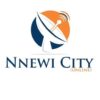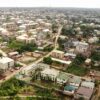History and heritage
Abba, Anambra State: Everything You Need to Know About the Town
Abba is a town in Njikoka LGA in Anambra State. Discover the history, people, culture, economy, land issues, leadership and more about the town.
Abba is one of the most historic and culturally rich towns in Anambra State known for its strong traditions, strategic location and a community life shaped by both heritage and modern realities.
Located in Njikoka Local Government Area, Abba is a town with deep ancestral roots, vibrant festivals, natural resources and a people who value unity and progress. In recent years, the town has also drawn public attention because of land issues, leadership questions and its role in regional development, making it a community worth understanding in full detail.
This write-up gives you everything you need to know about this Anambra town, from its history, villages, culture, traditional leadership, town union structure, economy, challenges, to what the future holds.
Whether you are researching Anambra towns, studying Igbo communities, or simply want reliable, fact-checked information, this article offers a clear and complete look at the community in a way that is easy to read.
A Brief History of Abba
Abba is one of the six autonomous communities that form the council Njikoka Local Govern Area in Anambra State. According to local tradition and historical records, its roots trace back to ancient Igbo lineage and ancestral settlement.
Oral tradition holds that Owelle was a key ancestral figure in the founding of Abba. He is said to have cleared and settled the fertile lands that make up present-day Abba, Nimo, Abagana and Eziowelle. Owelle’s legacy is central to the identity of Abba. Some traditions claim that the present-day four major villages in Abba, i.e. Ire, Amabor, Okpuloji and Ezi-Abba were once part of as many as nine original settlements.
The name “Abba” resonates deeply with meaning. While written history is scarce, the community’s origins are preserved through oral narratives and spiritual sites. Among these is the “Okwu Fiajioku”, a shrine dedicated to the Fejioku or Ahiajioku deity which symbolizes fertility, yam harvest and the town’s agricultural heritage.
Early inhabitants of Abba were known for three major occupations:
- Clay pottery and ceramics – thanks to rich deposits of ceramic mineral in the area.
- Farming and hunting – Owelle and his descendants were skilled hunters and farmers who made the land productive.
- Trading – early Abba people were also merchants, possibly trading their clay products and farm produce.
A notable feature in its origin story is the Oyi stream, a natural spring whose source lies on a hill in the community. According to local tradition, this spring was once defiled by a leper, and as a result, its source relocated naturally. This is a mystical tale that underscores how spiritually the community holds the spring. The water from this spring, said to be very pure, has long supported the domestic and agricultural needs of the town.
Although Abba is now generally understood to comprise four main villages – Ire, Amabor, Okpuloji and Ezi-Abba, oral histories suggest there were previously more. Over time, due to a combination of population shifts, crises and strategic alliances, some of the smaller settlements merged.
One story records that in earlier times there were echoes of plague and persistent misfortunes in some smaller villages, prompting migrations, fusions and consolidations into the larger, more stable clans that exist today.
Geography and Location
Abba is a town situated in Njikoka Local Government Area of Anambra State, Nigeria. It is one of the six autonomous communities within the LGA. The town lies roughly at 6°11′ N latitude and 6°55′ E longitude, along the old Enugu–Onitsha “Trunk A” road. Map data also shows Abba’s coordinates as about 6.21808° N, 6.97869° E, with an elevation of approximately 137 meters (449 ft) above sea level.
The Enugu–Onitsha dual carriageway (interstate road) cuts through Abba. According to local sources, this road bifurcates the community into two distinct zones: the ancestral / farmland area where many of its original farms and larger plots lie, and the modern homestead where more of the residential parts of town are located.
The total land mass of the town is about 7.9 kilometers (contiguous land) according to its town union. The topography is described as generally table plain, but with sloping, stony and slightly hilly characteristics in parts. These terrain features reflect both the town’s farmland and rocky or undulating zones which may influence settlement and agricultural patterns.
Abba is bounded by several neighbouring communities. On the east, Ukpo (in Dunukofia LGA); on the west, Awkuzu (in Oyi LGA); on the south, Ifite-Dunu (Dunukofia LGA), and on the northeast: Enugwu-Agidi (in Njikoka LGA).
Abba has a natural spring called the Oyi stream known locally for its purity. The town is rich in ceramic minerals (clay) which historically supported pottery and other clay-based economic activities.
As part of Njikoka LGA, the town lies under the governance of the LGA and is one of its autonomous communities.
Governance and Leadership
Abba has a dual leadership structure that combines traditional authority and modern political organization. This setup allows the community to preserve its heritage while meeting today’s development needs.
Traditional Leadership
The traditional ruler of Abba is the Eze-Abba who leads in consultation with a body known as the Igwe-in-Council. The Igwe-in-Council includes 20 ichies (chiefs) made up of five ichies from each of the four villages. The current monarch is HRH Igwe Sir Leonard Nwankwo Ezeh who was born in 1942 in Ezi-Abba village.
According to the traditional governance structure, there is also a cabinet made up of the Eze and these ichies (recognized chiefs) who help in decision-making for customary matters. Anambra State Government has on record urged Igwe Ezeh to ensure that future chieftaincy appointments follow established conventions. In 2025, a letter from the Commissioner for Local Government, Chieftaincy and Community Affairs warned against unilateral appointment practices.
Political / Civic Leadership
The political leadership of Abba is carried out by the Abba Town Union (ATU). This is the body responsible for managing community development, representing Abba in civic matters and coordinating grassroots projects.
Currently, Mr. Alexander Ekwuagana serves as the caretaker President General of the ATU. However, his long stay in office has been controversial. Amabor village, one of the four main villages has publicly demanded an election, claiming that it is their turn to produce the President General according to the town’s constitution.
The youth wing has also raised concern. In August 2025, Anambra State Association of Town Unions (ASATU) Youth Wing wrote to Mr. Ekwuagana demanding that he conduct an election for the youth wing within 30 days, citing the need for democratic governance.
On the issue of land and community security, the Mayor of Njikoka LGA inaugurated a 21-member Finance & Management Committee under the Agunechemba security architecture to serve in the town. This committee includes representatives from the Town Union.
On land matters, the ATU has publicly stated that Abba community land along the Enugu–Onitsha expressway is not for sale. The President General, Mr. Ekwuagana warned residents against fraudulent sales of community land by outsiders.
Natural Resources and Local Economy
Abba is not just a town with rich tradition, it also has important natural resources and a local economy that reflects both its heritage and its potential.
Key natural resources are:
Ceramic Mineral (Clay): According to Abba Town Union, the town is endowed with natural resources such as ceramic mineral. This clay has historically supported local craftsmanship, clay-product manufacturing and small-scale industries. The presence of clay aligns with broader mineral data for Anambra State which has known deposits of kaolin (a type of clay) used in ceramics and other industries.
Oyi Stream (Spring Water): Abba is home to a natural spring known as the Oyi stream whose source is on a hill in the community. According to local oral tradition, the source of the spring relocated many centuries ago, a change explained through a spiritual/mystical story that involved a leper. The spring flows from Abba through neighbouring areas, and its water remains notably clear.
Agricultural Land: Abba has extensive farm land. In the wider Njikoka LGA, farming is a central part of the local economy, with smallholder farmers producing crops and contributing to both local consumption and trade. The local government supports farmers with agricultural inputs, extension services and programmes to boost productivity.
How These Resources Drive Local Economy
The clay in Abba provides raw materials for pottery, brick-making and other ceramic products. This not only sustains traditional crafts but can support cottage industries if properly harnessed.
The Oyi spring is not just a cultural symbol, its water is valuable for daily life (household use) and potentially, for small-scale agrarian irrigation or other community uses.
Farming remains a backbone of the local economy. Njikoka LGA’s investment in agriculture, through fertilizer distribution, seeds and training shows that the local government sees agriculture as a way to grow rural incomes.
The exploitation of clay for local crafts and the support for agriculture can create employment, especially for youth and small business owners in the community.
Constraints and Opportunities
Because the local economy is still heavily agrarian and small-scale, scaling clay-based industries may require more infrastructure and capital. Land for farming can be limited, and smallholder farmers may struggle to expand without better access to credit or inputs. Environmental protection of the Oyi stream is important as misuse or overuse could threaten the water source.
In terms of opportunities, Abba can leverage its clay deposits to attract small to medium-scale ceramic or brick-making enterprises. Community-driven cooperatives could maximize the value of agricultural produce by processing locally, rather than just selling raw goods.
Local and State governments, in collaboration with the Town Union could develop touristic or eco-cultural projects around the Oyi stream, combining heritage with sustainable water resource management.
Cultural and Social Life
Abba’s cultural fabric is deeply woven into Igbo traditions, and social life in the town is shaped by customs, community ties and age-old institutions.
Age Grades and Community Organization
In Abba, age grades play a central role in social organization. According to the Abba Town Union, age grades in Abba consist of men born within three-year brackets. Historically, age grades managed much of the town’s labour and administration.
In the years of Nzuko Obodo, government and administrative orders were handled by the age grades while traditional issues were handled by ichies and elders. As a sign of respect and community structure, once members of an age grade reach around 75 years, they are exempted from community labour and levies.
Festivals and Traditional Celebrations
Abba shares in the broader Igbo tradition of celebrating the New Yam Festival (also known as Iri Ji or Iwa Ji). The New Yam Festival in Igbo culture typically involves rituals, thanksgiving to deities or ancestors, masquerades, dancers,and wrestling, all of which reinforce community bonds.
Given its spiritual heritage, festival celebrations in the town likely include elements that venerate Fejioku (also called Ahiajioku) – an ancestral/ yam-associated deity mentioned in its history.
Traditional Leadership and Respect for Elders
The traditional ruler and a council of ichies command strong cultural respect. Social order is reinforced through age-grade structures and the Ichie (chief) system. Elders and titleholders are not just respected but actively involved in the governance and cultural life of Abba.
The Igwe-in-Council helps to settle customary matters, disputes and oversees cultural rites.
Language, Values and Shared Identity
Residents of Abba speak Igbo, the dominant language in Anambra State. Traditional Igbo values such as respect for elders, the importance of community and shared responsibility remain deeply ingrained. These values are expressed through age-grade activities, collective labour and cultural rituals.
Entertainment, Rituals and Masquerades
Cultural life in Njikoka, and by extension Abba includes masquerade performances which are part of major festivals. These masquerades, along with dancing, drumming and storytelling, help to preserve the traditions and educate younger generations about their heritage.
Social Cohesion and Modern Life
Having strong age-grade systems helps the town to maintain social cohesion, even as the town modernizes. The age grades continue to organize community labour, social projects and mutual support.
Despite modern pressures such as urban migration, traditional structures like age grades, ichies and communal festivals provide continuity and a sense of identity. Abba Town Union (ATU) plays a role, not just in political leadership but also in organizing social and cultural events that help unite the townspeople, regardless of village or background.
Demographics and Education
Abba is part of Njikoka Local Government Area (LGA) in Anambra State. The estimated population of Njikoka LGA as at 2022 was about 211,500 people. Because Abba is one of the communities within Njikoka, it shares in this population base, though there is no publicly available, up-to-date breakdown for Abba alone.
The people of Abba are predominantly Igbo, the same as most of Njikoka LGA. While many people in Njikoka LGA still engage in subsistence farming, there is also rural-urban migration. According to Njikoka Local Government’s official site, youth are increasingly drawn to white-collar or non-agricultural work, which reflects a broader shift in the local economy.
There is a Community Primary School located in the town. There is also a Community Secondary School, Abba listed among the secondary schools in Njikoka LGA. According to Njikoka LGA’s official services page, the local government supports youth education through skills development programmes which include vocational training in ICT, tailoring, carpentry and more. Given the Igbo-speaking majority, it is common for schools in Abba and Njikoka to teach in English, with Igbo taught or used informally in community interactions.
Abba’s demographic profile reflects a growing, youthful Igbo community within Njikoka LGA, shaped by both traditional farming and modern migration trends. On education, while basic public schooling (primary and secondary) exists, there is also a push toward skills-based learning to meet the changing needs of youth in the town.
The mix of traditional livelihoods and modern vocational training suggests that Abba is preparing for a future that balances heritage with progress.
Infrastructure and Development
Infrastructure and development in Abba are tightly linked to the broader plans and projects in Njikoka LGA and Anambra State, with both local and State-level stakeholders playing important roles.
A key infrastructure issue for Abba is the Abagana–Ukpo–Abba–Awkuzu Road. This road is being reconstructed by Grand Star Limited. However, as of 2025, the Anambra State House of Assembly Committee on Works has raised concerns about the slow pace of work.
In June 2025, the Mayor of Njikoka LGA inaugurated a 21-member Agunechemba Finance & Management Committee in Abba. The committee is part of a security-architecture initiative but also has a development mandate: they are expected to manage funds and community projects with transparency.
This committee’s establishment was welcomed by Abba Town Union leaders, highlighting a model where local governance (town union), LGA government and community security structures collaborate for development.
Notable People from Abba
Some of the most well-known and influential figures from Abba include:
Chimamanda Ngozi Adichie
In December 2022, she was honoured with the chieftaincy title “Odeluwa Abba”, meaning, “one who writes for the world” by the traditional ruler, Igwe Sir Leonard Nwankwo Ezeh (Eze‑Abba). Little wonder Abba was part of the setting for her book “Half of A Yellow Sun.”
Late Professor James Nwoye Adichie
He was a respected professor of statistics at the University of Nigeria, Nsukka. He also received a chieftaincy title in Abba – “Odelora Abba,” recognizing his contributions through scholarship and community service.
HRH Igwe Sir Leonard Nwankwo Ezeh
As the traditional ruler of Abba, he is a prominent figure in the community. Born in 1942 in Ezi‑Abba village, he became Eze in 1976 and has overseen both cultural and development matters in the town. Beyond his traditional role, he has also engaged in business. He founded a transport company called God Bless Ezenwata Nigeria Ltd. that provides employment in the region.
Current Challenges
Abba, Anambra State
Abba faces several serious, interlinked challenges in the present day. Though the town has strong traditions and resources, issues of land ownership, leadership legitimacy and community unity continue to strain its progress.
Land Disputes
One of the most persistent and high-stakes challenges for Abba is the longstanding land dispute with neighbouring communities, particularly Ukpo. In 2024, ATU issued a public statement saying that ancestral Abba land along both sides of the Enugu–Onitsha expressway is not for sale. They warned against fraudulent appropriation or sales of that land.
The land contest has real consequences. In 2020, there were reports that compound walls of some Abba residents were demolished, and even school buildings were affected.
Legally, the dispute has gone very high. The Supreme Court eventually ruled against Abba in some land claims, giving favourable judgment to other claimants such as Ukpo. There was also a directive for the parties to return to the High Court to sort the matter thoroughly, because parts of the court records from earlier trials were missing.
These land challenges affect Abba’s economic development, social stability and trust in governance, because unresolved land rights raise fear and uncertainty among indigenes.
Leadership Crisis
ATU has been run by a caretaker President‑General, Mr. Alexander Ekwuagana since 2020. According to critics, this is a violation of the town union’s constitution. Amabor village, one of the four main villages strongly insists that it is their turn to produce the President‑General, following the community’s governance norms. They argue that the long stay of the caretaker PG is a breach of the rotation system.
In May 2025, Amabor Welfare Union formally demanded that ATU adhere to its constitution and call for a legitimate election. They gave a seven-day ultimatum, warning that they would take all necessary and appropriate steps, if this was not done.
The tension has spilled into public unrest. In April 2025, a peaceful protest by youths was reportedly foiled by security forces. Shortly after, there was another reported confrontation during a social event.
Mr. Ekwuagana has responded by citing an ongoing court case, telling critics to let the court determine what is in the court. This leadership dilemma undermines community confidence and makes coordinated development difficult because some residents do not see current leaders as legitimately elected.
Community Unity and Trust
The land disputes and leadership issues are not separate problems, they feed into each other, weakening social cohesion. Many residents feel insecure about their land, and some believe that leadership favoritism contributes to these tensions.
The deep disagreements, especially among villages like Amabor risk fragmenting the town. When people do not trust that leadership roles will rotate fairly, they may disengage from community projects and governance.
Without a credible, transparent resolution to both land claims and the town union election, Abba may struggle to present a united front for development as divisions weaken its bargaining power with government bodies and investors.
In Conclusion …
Abba, Anambra State is a town rich in history, culture and natural resources. From its origins and traditional leadership under the Eze‑Abba, to its vibrant age-grade system, festivals and communal life, the town reflects the enduring values of Igbo people. Its fertile lands, clay deposits and Oyi spring highlight economic opportunities that, if properly harnessed, can improve the livelihoods of its residents.
Yet, like many growing communities, Abba faces current challenges. Land disputes, prolonged leadership crises and issues of unity have sometimes slowed development and created tensions among residents. Addressing these concerns through transparent governance, legal clarity and community dialogue is key to unlocking the town’s full potential.
Education and infrastructure continue to evolve, with primary and secondary schools nurturing future generations while state and local government initiatives aim to improve roads, community facilities and public services.
Prominent figures like Chimamanda Ngozi Adichie, her late father Professor James Nwoye Adichie, and HRH Igwe Sir Leonard Nwankwo Ezeh showcase the talent, leadership and cultural pride that originate from Abba.
Ultimately, Abba stands as a town with deep traditions and promising prospects. By fostering unity, responsible leadership and sustainable development, Abba can continue to thrive and preserve its rich heritage while embracing progress and opportunity for future generations.
References
- https://abbatownunion.org.ng/history/
- https://njikoka.an.gov.ng/about/
- https://absradiotelevision.com/2025/05/25/anambra-state-assembly-committee-unhappy-with-pace-of-work-on-abagana-ukpo-abba-awkuzu-road-project/
- https://www.odogwublog.com/tensions-mount-in-abba-community-as-amabor-village-demands-leadership-transition/
- https://guardian.ng/news/supreme-court-resolves-land-dispute-between-abagana-and-ukpo-communities-2/
- https://www.vanguardngr.com/2023/01/chimamanda-becomes-first-woman-to-receive-chieftaincy-title-in-hometown/
- https://face2faceafrica.com/article/renowned-nigerian-writer-chimamanda-adichie-crowned-an-african-traditional-chief-in-her-hometown
You might want to check this out…
























